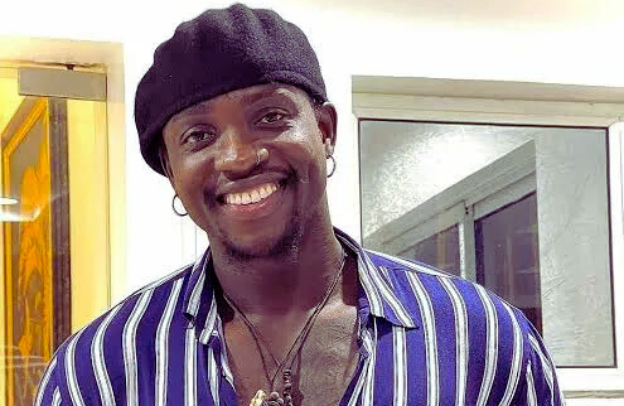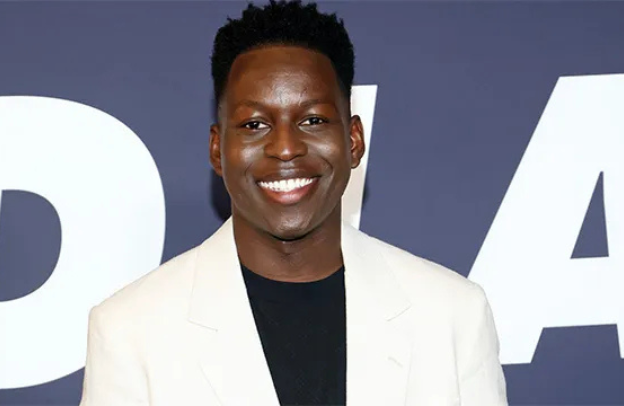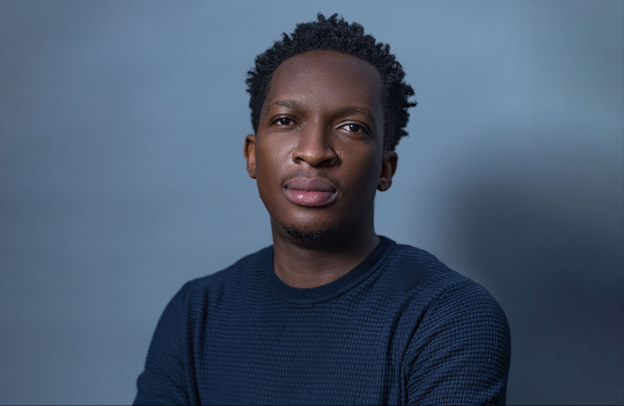Sir Abubakar Tafawa Balewa – The First Prime Minister Of Nigeria Oct. 1, 1960 – Jan. 15, 1966

Sir Abubakar Tafawa Balewa was the first and only prime minister of Nigeria at independence in 1960, before the country changed from a parliamentary system to a republic in 1963. He is believed by many to be in favor of maintaining close ties with the British. In today’s video, we are going to learn about his life and legacy and why we need to remember him as a remarkable figure in Nigeria’s history.
Want to learn more about storytelling? Start by downloading the first chapter of The Storytelling Series for Small Businesses.
Early Life and Political Ascent
Born on December 1st, 1912, in Bauchi, Northern Nigeria, Abubakar Tafawa Balewa hailed from the Fulani ethnic community, a group known for its rich cultural heritage and strong Islamic traditions. Both his father, Yakubu Dan Zala, and his mother, Fatima Inna are of Fulani ancestry.
His early education was immersed in Islamic teachings, but he later attended the Bauchi Provincial School where he excelled academically and demonstrated good leadership potential.
In 1944, he embarked on a remarkable journey alongside a select group of knowledgeable educators from the northern region. Their destination was the prestigious University of London’s Institute of Education, now an integral part of University College London.
After completing his educational sojourn, he returned to his homeland, Nigeria, armed with newfound expertise. He assumed the role of Inspector of Schools under the colonial administration, wielding his passion for education to improve the system. However, his ambitions did not stop there. Fueled by a desire to create a lasting impact on his nation, he ventured into the realm of politics where he became well-known and a national figure.
Rising to prominence in Nigeria politics
Despite being born a commoner, Abubakar Tafawa Balewa’s rise to become a political leader in the NPC (Northern People’s Congress) was quite extraordinary. Having found his way into the position of power, he managed to navigate a unique path, as he simultaneously championed the interests of the northern region and advocated for reform and unity within Nigeria.
Sir, Balewa’s political journey took off when he was elected to the House of Assembly of the Northern Region, a significant achievement in 1946. Building on this momentum, he secured a position as one of the five representatives from the Northern Region in the Central Legislative Council in Lagos by 1947. As a legislator, Balewa was a strong advocate of the rights of Northern Nigeria, an interest he proudly promoted throughout his political career.
Despite facing some opposition from conservative emirs in the predominantly Muslim north, Balewa’s unwavering dedication to his constituents garnered his re-election to the assembly in 1951. His tenacity in overcoming challenges and dedication to public service set him apart as a remarkable leader with a unique story.
From 1952 until his passing, Balewa dedicated himself to serving in Nigeria’s federal government. Initially appointed as the Minister of Works and Transport during the mid-1950s, he later rose to become the first Prime Minister of Nigeria, leading the National People’s Congress (NPC) in the House of Representatives.
Following the pre-independence elections in 1959, Balewa once again assumed the position of Prime Minister, this time heading a coalition government comprising the NPC and Nnamdi Azikiwe’s National Council of Nigeria and the Cameroons, NCNC. Even after Nigeria officially gained independence in 1960, he retained his prime ministerial role.
Leading Nigerian delegation to the United Nations General Assembly
The following is an extract from Prime Minister Balewa’s speech at the United Nations General Assembly, New York, on 7th October 1960.
“On behalf of my countrymen in Nigeria, I thank you all most sincerely for accepting us as a fellow Member of this organization. We are properly grateful for this recognition and for the generous friendly gesture made by so many Members who sent very distinguished delegations to join us in celebrating our accession to independence.
I am particularly pleased that so many important representatives could come to Nigeria on that occasion because they will be able to inform their governments of the genuine desire of Nigeria to have friendly relations with you all.”
During the speech, he talked about Nigeria being a populous country with about 35 million people and a relatively large territory. There is a point that is particularly interesting about the speech, looking at the humility of the prime minister who states that “We are willing to learn before we rush into the field of international politics”.
Nigeria was barely 7 days old as an independent country and we could not possibly pretend to know all the complexity of international politics. However, Prime Minister Balewa insisted that the country was totally unwilling to be diverted from ideals that did not reflect our interests. And that Nigeria will not be found to align itself as a matter of routine, with any bloc.
That was an intelligent position to start from and I wish that successive Nigerian leaders have built upon that, playing international politics in a way that will favor the Nigerian people and our collective aspiration.
But the sad reality is that the Nigerian train has been derailed for too many a time that as we talk in 2023, we barely even have an idea of where we are heading as a country and what we are supposed to represent in the world.
Sometime in 2014, I interviewed the then-Nigerian ambassador to Italy, Ambassador. Eric Tonye Aworabhi and I asked him why Nigeria is not focused on resolving its primary problems, like infrastructure, employment of the youth, and resolving the obvious identity crises in the country. And he said something to the effect that we are distracted, and that you cannot think properly if you are simply running around.
Yes, the ambassador is right. Both Nigeria as a nation and Nigerians as citizens have been running around from one crisis to the other since the early years of independence in 1960 and that is not allowing the country to solve its primary problems.
The problems faced by Balewa’s leadership.
Despite his high-ranking position, Balewa’s authority was constrained by the federal structure of the government, which allocated more power to the regional administrations.
Now, it needs to be pointed out that in the build-up to Nigerian independence in 1960, there were a lot of fractions among the Nigerian founding fathers, which in essence is nothing more than the legacy of the colonial structure to better exploit the people and their resources. I have already talked about this in previous videos in this series.
However, as the country was moving towards independence, the idea of nationhood and what it would mean to be a people needed to have been redefined by the same people. By that I mean the following:
- What needed to be the defining characteristics of the people to be called Nigerians?
- What language should they speak and how should that language differentiate them in the world?
- What should happen to the traditional structure already in place like the Emir, the Obas, and the Igue: Should they have been abolished, integrated into the new administration, or simply exist side by side, and how?
- What was supposed to be the grand political structure: Was it supposed to be based on the political, economic, and military structure of previous empires before the arrival of the European colonialists? Was it supposed to be based on European systems of government, which with all fairness, many Nigerians, including those who went to study abroad had very limited knowledge about?
We cannot pretend that these had no consequences, coupled with the fact that the British colonialists intentionally set multiple layers of traps across the places and needed a few loyalists they could control thereby indirectly controlling the independent Nigeria nation.
Of course, no one ever said it was going to be easy and it has never been easy for the Nigerian people before and since October 1st, 1960. These are only a few of the challenges that the Balewa administration needed to deal with and in a short space of time, they eventually destroyed the first republic as we shall soon understand.
During the years 1964 to 1966, escalating tensions terribly plagued the nation into a complicated situation. These tensions were characterized by a partial election boycott in 1964, unrest within the military ranks, and violent outbreaks in the Western Region.
Tragically, Balewa’s leadership ended abruptly when he fell victim to the first of two Nigerian army coups in 1966. And his untimely demise marked a significant turning point in Nigeria’s political landscape.
His Military Overthrow And The End Of The First Republic
Sir Abubakar Tafawa Balewa was overthrown in a military coup that took place on January 15, 1966, barely 6 years after independence from Britain. The coup, known as the “1966 Nigerian coup d’état,” was carried out by a group of young military officers, primarily from the Igbo ethnic group, who were dissatisfied with the situation in Nigeria.
Several immediate factors contributed to the overthrow of Balewa’s government which the young military official strictly blamed on the ruling elites. Here are some of what you will gather as the immediate causes of the coup, flipping through the Nigerian political chronicles. And as to whether the young military officers were wrong or right is a different argument altogether:
- Political Instability: Nigeria was facing political and social unrest, with growing tensions among different ethnic and regional groups. Some military officers believed that the civilian government, led by Balewa, had failed to address these issues effectively.
- Perceived Corruption: The military coup plotters accused the civilian government of corruption and mismanagement, which they believed hindered the country’s progress. Like I said a while ago, there is little or no evidence of corrupt practices like mass embezzlement of funds in Balewa’s administration, compared to the celebrated criminalities that later became the code of conduct of Nigerian politicians. Some have learned to amass unimaginable amounts of state funds and hide them abroad with their international criminal allies, owning properties they will never use, across the places, while their people suffer for lack of the basic necessities of life.
- Regional Discontent: There was a sense of regional dissatisfaction, particularly from the Eastern region (dominantly Igbo), which felt marginalized and neglected in the political power-sharing arrangements of the time.
- The desire for a Stronger Military Role: The coup plotters sought to establish a stronger military presence in governance and believed that the military could bring about stability and unity in the country.
As a result of the coup, Balewa’s government was overthrown, and the first republic was dissolved. This event marked the beginning of a series of political upheavals that eventually led to Nigeria’s involvement in a bitter civil war known as the Nigerian Civil War between 1967 to 1970.
In a BBC article, “How first coup still haunts Nigeria 50 years on”, it stated, and I quote: “The January 1966 coup propelled a group of young military officers onto the national stage. Now wealthy septuagenarian grandfathers, they still wield enormous influence in Nigerian politics.” Going further, the article added that “Mr. Jonathan is the only president in Nigeria’s history who had no personal or family involvement in the 1966 crisis and the ensuing civil war”. End of quote.
Balewa’s Key Accomplishments and Legacy
Balewa’s political astuteness was instrumental in navigating the nation’s early years of independence, charged with challenges and expectations. He spearheaded the formation of parliamentary democracy, strengthening Nigeria’s political institutions and laying the foundation for future generations of leaders.
His commitment to social justice and economic development led to the establishment of various national projects, including the Nigerian Television Authority (NTA) and the Central Bank of Nigeria. These initiatives aimed to empower Nigerians and promote national unity through shared values and aspirations.
Abubakar Tafawa Balewa’s legacy extends far beyond Nigeria’s borders. His principled stance on African liberation and anti-colonialism earned him the respect of fellow African leaders and the international community.
He championed the cause of African unity and was a founding member of the Organization of African Unity (OAU), now the African Union (AU), which sought to promote cooperation and solidarity among African nations.
Let us celebrate the life of Abubakar Tafawa Balewa, a true hero and statesman, whose legacy continues to inspire and shape the destiny of Nigeria and Africa as a whole.
Want to learn more about storytelling? Start by downloading the first chapter of The Storytelling Series for Small Businesses.





